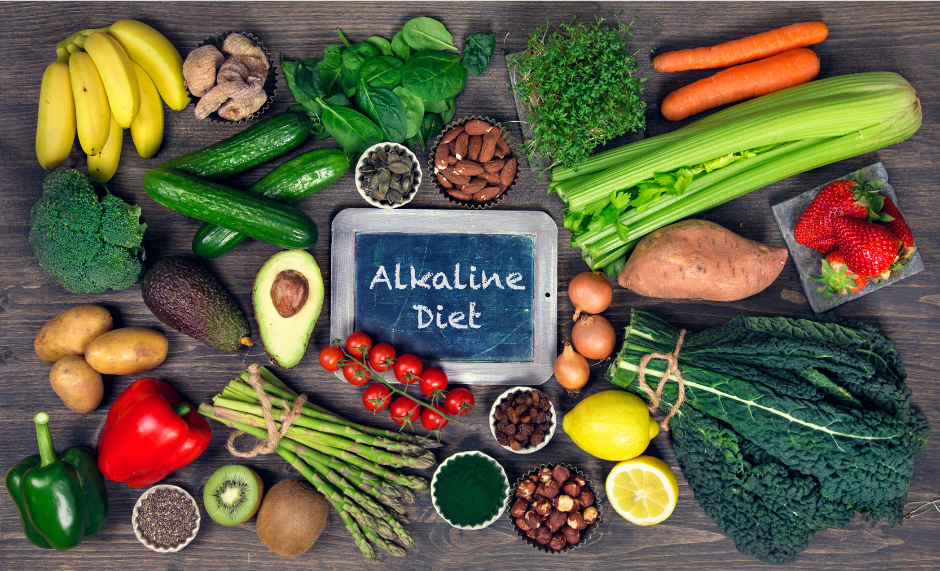In a world where wellness, transparency, and self‑care are no longer nice extras but essentials, the way we care for our intimate bodies matters. This includes what you choose when looking for natural lubricants. Whether you are looking for the best natural lubricant for sex, exploring what can be used as a personal lubricant, or seeking a gentle and natural intimate lubricant, it’s worth knowing what options are safe, clean, and pleasurable. Let’s dive deep into what defines a good personal lubricant, what to avoid, and three standout products you might love.
Why Lubrication Matters — Beyond Comfort
Lubrication isn’t just about reducing friction — though that is vital. It’s about safety, pleasure, and intimate health. Friction without sufficient lubrication can lead to discomfort, micro‑tears, irritation, even infection. Many people experience dryness or insufficient lubrication at different times—postpartum, menopause, during periods, or due to stress, medications, or hormonal fluctuations. Choosing a safe, effective lubricant can make a real difference to comfort, confidence, and connection.
Natural Lubricants vs. Conventional Ones
When we say natural lubricant or natural intimate lubricant, the focus is on fewer synthetic chemicals, no harsh preservatives, minimal artificial fragrance or dye, and better skin compatibility. Many conventional lubes include glycerin with high sugar content (which can promote yeast overgrowth), parabens, synthetic fragrances, or ingredients that irritate sensitive tissue.
The right personal lubricant should be:
-
Safe for the body and mucous membranes
-
Compatible with condoms / toys (if used)
-
Gentle, especially for sensitive or reactive skin
-
Clean to wash off
-
Sustainable (packaging, sourcing) if that matters to you
Safe Ingredients — What to Look For & What to Avoid
| Good Signs (Safe / Natural Ingredients) | Red Flags (To Avoid) |
|---|---|
| Water‑based lubes using organic aloe vera, plant oils, botanicals, minimal preservatives | Petroleum jelly, mineral oil, synthetic fragrances/dyes, parabens, high sugar glycerins, anything that degrades latex condoms |
| Oils that are body‑safe (like certain nut or fruit oils), natural “play oils” with simple ingredients | Thick “petroleum‑based” gels, heavy perfumes, dyes, potential allergens without clear labeling |
For example, coconut oil is popular for natural lubrication because it’s moisturizing and mild. But coconut oil can degrade latex condoms. If you use latex protection, that matters. Similarly, olive oil can be soothing but shares the same latex issue, plus its consistency can be heavier and less ideal in certain situations.
Water‑based natural options are often the “go‑to” because they generally work with all types of condoms and toys. They wash off easily, don’t stain as badly, and tend to mimic natural lubrication more closely.
Spotlight: Three Clean Natural Lubricants You’ll Love
To help you see what clean, pleasurable, eco‑friendly lubrication can look like in practice, here are three products from Bona Dea Naturals that meet high standards for safety, natural ingredients, and performance.
1. Dame Products Play Balm
This balm‑style lubricant is ideal for those who want something thicker, moisturizing, and long‑lasting. The Dame Play Balm offers rich glide without synthetic fillers, designed to nourish skin while reducing friction. Because it’s balm‑based, a little goes a long way—and it’s especially nice for external use, massage, or those moments when thicker lubrication is preferred.
2. Woo More Play Shag Juice Personal Lubricant (Water‑Based, All Natural)
If you want water‑based lubricant that’s all natural, Woo More Play Shag Juice is an excellent choice. It delivers that sought‑after slickness and glide, washes off easily, and is generally compatible with all condoms and toys. Since it’s formulated without harsh synthetic chemicals, it’s especially good for sensitive individuals who still crave a clean and joyful lube.
3. Woo More Play Coconut Love Oil Personal Lubricant
For lovers of natural oils, Woo More Play Coconut Love Oil blends the hydrating, skin‑beneficial qualities of coconut oil into a lubricant format. It’s ideal when latex isn't involved (or if you use non‑latex protection), and when you need a rich, sensual oil that doubles as skin nourishment. The scent is often naturally pleasant, and the texture is lush.
What to Avoid
To make sure your intimate experiences remain safe and pleasurable, here are things to be wary of when selecting lubricants:
-
Petroleum jelly / mineral oil: These can degrade latex condoms and trap bacteria. Thick texture also can block pores or cause irritation.
-
Parabens & harsh preservatives: Used to increase shelf‑life, but can mess with your body’s natural balance and sometimes trigger sensitivity.
-
High glycerin content (especially if sugar‑based): Can feed yeast or bacteria and contribute to imbalance or infection risk.
-
Artificial fragrances & synthetic dyes: They may smell nice, but fragrance chemicals are among top irritants.
Choosing something labeled paraben‑free, fragrance‑free (or naturally scented), and ideally tested for skin compatibility is smart.
How to Choose the Best Natural Lubricant for Sex: Questions to Ask Yourself
Here are some guiding questions when hunting for the best natural lubricant for sex that feels good and aligns with safety:
-
What protection are you using?
If you're using latex condoms, choose a water‑based or silicone‑based lubricant that is safe with latex. Oils like coconut or mineral oil will degrade latex. -
How sensitive is your skin or tissue?
If you have sensitive mucous membranes, history of yeast infections, or are postpartum/menopausal, going for water‑based and fewer ingredients is usually safer. -
What kind of experience do you want?
Thick balm/liquid, oil‑like slip, fast drying, warming or cooling effect? Different lubricants give different sensations. -
Do you want scent or flavor?
If yes, natural essential oils or mild, natural fragrance might appeal—but again, more ingredients = more chance of irritation for some people. -
Ease of clean‑up / compatibility with toys:
Water‑based lubes wash off easily. Oils can linger. Certain oils or balms might damage silicone or other toy materials.
Safety, Interactions, & Best Practices
Natural lubes are generally safer than harsh chemical‑laden ones, but “natural” doesn’t always mean “no risk.” Here are safety pointers:
-
Patch test: Apply a tiny amount to a less sensitive area (inner arm) to see how your skin reacts.
-
Avoid internal use if allergies: If you have nut allergies, aromatic sensitivities, or plant allergies, check the label carefully. Coconut, essential oils, etc., can still cause reactions.
-
Compatibility with condoms / protection methods: As mentioned, oils can weaken latex. Use non‑latex condoms (polyurethane, polyisoprene) or avoid that protection type depending on product.
-
Avoid certain ingredients if you have recurring infections: Sugar/glycerin heavy lubes or fragranced ones might exacerbate yeast.
-
Pregnancy, postpartum, hormonal changes: The skin can be more sensitive. What felt good before might feel different now. Natural, gentler formulas are often better.
How to Use Natural Lubricants for Best Comfort & Pleasure
Using a good lubricant is part of an enjoyable experience—not just adding the product. Here are tips:
-
Use enough lubricant. A common reason for discomfort is not using sufficient lubrication.
-
Reapply as needed. Natural lubricants might absorb or dry faster than synthetic ones.
-
Clean up gently afterward. Use mild soap, avoid harsh scrubbing. If you used oil or balm, you might need a little more effort to wash off.
-
Store your product well. Heat and sun can degrade natural oils or plant‑based ingredients. Keep sealed and in a cool place.
Putting It All Together
To recap, when you’re looking into natural lubricant or wondering what substances are safe for personal lubrication, here are key takeaways:
-
Prioritize water‑based or plant‑oil‑based options with minimal, recognizable ingredients.
-
Avoid petroleum or mineral oils (if you use latex protection), parabens, heavy fragrances, artificial dyes.
-
Consider your body’s sensitivity, whether you use condoms or toys, and your preferences around texture ( balm, oil, gel ).
-
Test new lubes gently at first.
And now, those three real‑world products we looked at are excellent examples of natural, skin‑friendly lubrication done well:
-
Dame Products Play Balm — thick, nourishing, great for sensual massage or outer surfaces.
-
Woo More Play Shag Juice Personal Lubricant (Water‑Based, All Natural) — clean, slick, compatible with most protection types.
-
Woo More Play Coconut Love Oil Personal Lubricant — lush oil‑based option for those seeking oil feel (with awareness about condom compatibility).
Why Choosing Natural Lubricants Isn’t Just About Product — It’s About Body Respect
Natural lubricants speak to more than just sex—they touch our relationship with our bodies. Choosing a product that’s gentler, safer, and more transparent is part of respecting your skin, your pleasure, your health. When you use a clean, trusted product, you reduce risk of irritation or harm, you honor how your body changes (with cycles, menopause, birth, stress), and you align with values like sustainability, self‑care, and wellness.
Let this be your reminder: the best lubricant for you is one that feels right, works smoothly, and respects your health. Natural doesn’t have to mean compromising on pleasure. In fact, often it means enhancing it—with fewer distractions, fewer worries, and more presence. Whether you go with a balm like Dame Products Play Balm, a water‑based all‑natural lube like Woo More Play Shag Juice, or an oil luscious like Woo More Coconut Love Oil, choose what aligns with your comfort, your values, and your body.
Here’s to smoother glide, joyful connection, and safe pleasure—everywhere in between.




